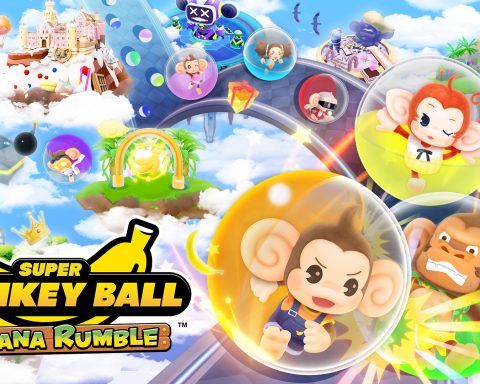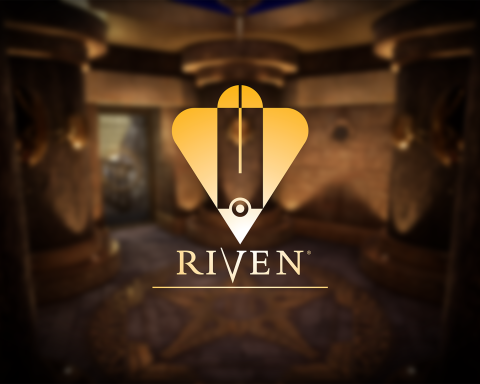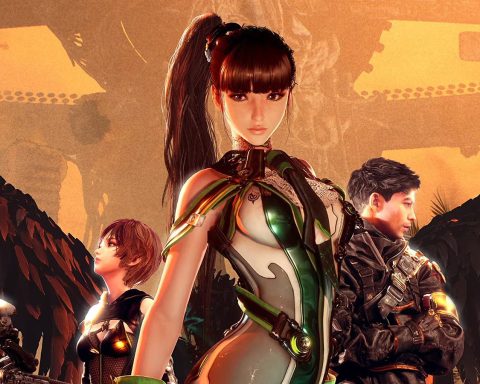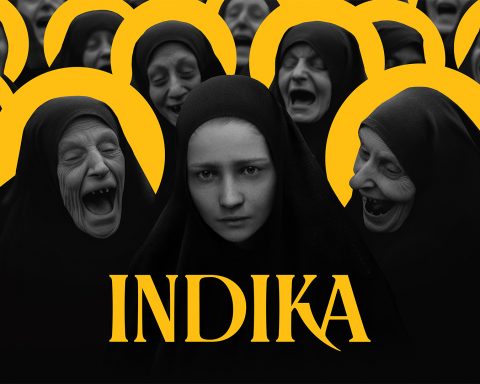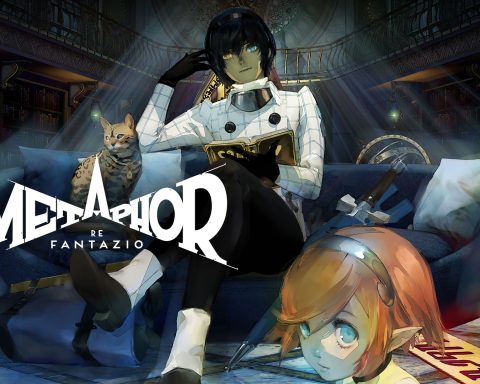And yet, despite this, this a very successful company, with a very large fan base and a growing digital distribution business in GOG.com.
What is CD Projekt’s secret to this success? It’s remarkably simple – it’s a company that has turned community management into an art form. As you’ll see from the interview below with Michal Nowakowski. CD Projekt Red Business Development Manager, the company really does go out of its way to listen to fan feedback and respond appropriately.
As such I think this company is one the larger developers and publishers could learn a lot from.
Digitally Downloaded (DD): What are your priorities for the year ahead?
Michał Nowakowski (MN):Our main priority right now is The Witcher 3. The game will be released in 2014 and we are working really hard to achieve our goal – combining our unique way of storytelling with an open world. This is a really ambitious goal and we want to reach our fans expectations. Preparing for this launch is our top priority, thought his does not mean that we stop supporting our other projects.
The Wild Hunt is the final part of Geralt’s trilogy and we’ve couldn’t have made it this far if it wasn’t for our fans. If it wasn’t for the support of the players, we could not even dream of such a conclusion to this tale. The game will be a new milestone in RPG development and we are working hard so it exceeds the expectations of our fans.
We are still building the Cyberpunk 2077 team. We’ve got some great talents working on that project, but we are still expanding. Our HR does a great job when it comes to helping people move to Warsaw, so if you are interested in moving to Poland, please see what our expats have to say on cdpred.com. There’s a bunch of job offers there, so feel invited.
DD: Game developers can now go out of business with a single underperforming title. Given that CD Projekt focuses entirely on big-budget AAA-releases and is an independent studio, how do you manage the risks involved with this business model now?
MN: First of all, as a part of a larger group we have the support of other companies that don’t create games themselves. GOG.com is growing fast and is a way of diversifying our risk. Apart from AAA games, we recently announced the smaller supporting products, which will be an addition to the two main brands.
Also the genre we are specialized in focuses mainly on the story, and this never gets old. RPGs have long tails, retail wise, so our back catalog still creates revenue, with almost no costs. This is a strong base, which gives us a strong backbone for future projects.
 DD: The Witcher 3 will be the first game you release simultaneously on consoles with PC. Do you consider consoles a critical part of your growth strategy?
DD: The Witcher 3 will be the first game you release simultaneously on consoles with PC. Do you consider consoles a critical part of your growth strategy?
MN: It depends on the particular market. In Europe, we have markets where PC is the dominating platform, while the console market is really strong in the US. Having a multiplatform release does not only increase your audiences, but diversifies your risks worldwide.
Developing a game for different platforms is a little different than for a single one, but we want the Witcher 3 to be designed so it feels appropriate for wherever you play it. This means we are putting a lot of detail in designing the interface and other features, so it uses the maximal potential each platform gives us.
The release of the Witcher 2 of Xbox 360 gave us a lot of experience and has also proven that our target group – mature and ambitious players – is widely present on that platform. Many people say that console and PC players look for different types of entertainment. The success of The Witcher 2 on Microsoft’s platform, shows that even if it is true, there is still a large audience for our games who want to play them in front of a TV, with a gamepad in their hands.
DD: You have one of the most loyal fan bases of any major development studio. What do you attribute your success in building this loyalty to?
Quality is the answer. The content you deliver should be top-notch, that’s the best way to have fans. We also are gamers ourselves and when thinking about our future we ask ourselves, “how would I react to this as a player?” And generally the answers are simple – we don’t like to be milked for money, or cheated and we’d like to be treated as partners.
As developers, we are aware how much we owe to the players who decided to buy our game. Fair treatment is our way of saying thank you.
That’s why we removed DRM from our game on PC when it posed more problems for legit users. We also didn’t support paid DLCs for small chunks of content and even gave the Enhanced Edition upgrade for The Witcher 2 for free. Also every owner of our game received a free digital back-up copy on GOG.com and we still patch and improve our titles.
Our fans help us a lot. Three new language versions have been created thanks to fan-support. We tested those and officially released patches allowing players to play in Turkish, Korean and Brazilian Portuguese.
These are really small gestures from us as a developer and we love our fans, so we have even more goodies prepared for you.
 DD: Of all the major developers in the west, you seem to be the most committed to introducing sex as a narrative- and gameplay-critical element in your games. Yet sex remains incredibly contentious with the broad games community. How do you manage this potential for negative fall-out?
DD: Of all the major developers in the west, you seem to be the most committed to introducing sex as a narrative- and gameplay-critical element in your games. Yet sex remains incredibly contentious with the broad games community. How do you manage this potential for negative fall-out?
MN: Our games are not about sex, it is not even a game feature. It’s part of the narrative, the storytelling, It builds up our vision of the world. Sex in our games does not differ much from what you see in movies today.
The Witcher’s world has a fantasy setting, but really shows things all around us – racism, greed and, of course, lust. We don’t put sex in the game so that someone gets excited over a nipple; we aim for mature audiences who are conscious of sex as a storytelling device – this way we don’t have any fall-out to take care of afterwards.
DD: You’ve resisted the trend that the other major developers and publishers have followed to introduce aggressive DLC and microtransactions into your games. Do you think it will become a commercial necessity in the future?
MN: Our core business is AAA titles. As I said, we want to be fair with our fans. Our reference is always whether what we are doing is something we as players would appreciate. Would players consider it worthwhile and necessary to pay for an in-game item? I don’t think so, not in our games. So we listen to the community to know what they want.
A good example of this is the REDkit, which will end its closed beta. Our forum was buzzing about a need to have a modding tool, so we created it.
The PC version 2.0 and later the Enhanced Edition of The Witcher 2 were also great examples of listening to our community. So don’t worry, we try to stay on top of knowing what the players want and we will deliver that.
DD: Are there any plans to broaden the IP portfolio beyond RPGs?
MN: Currently we are working on two major RPGs – The Witcher 3 and Cyberpunk 2077. Our strategy as developer is to be one of the world’s leading RPG creators, but does not mean our minds are not open to other possibilities. It’s just too early to look in the future beyond what we are preparing right now.
DD: Finally, what games are you playing at the moment?
MN: I am currently checking out Starcraft II: Heart of Swarm campaign mode, the new Tomb Raider, and revisiting Batman Arkham Asylum. Oddly enough, I actually played through the Arkham City sequel first.
And we also took the opportunity to get a brief comment from the GOG management regarding that side of CD Projekt’s business:
 DD: You’ve been the most successful in creating a rival digital distribution service to Steam with GOG. What have you done well that others have failed to achieve, and how will you continue to grow the service as it competes more directly with Steam and Origin in offering new releases?
DD: You’ve been the most successful in creating a rival digital distribution service to Steam with GOG. What have you done well that others have failed to achieve, and how will you continue to grow the service as it competes more directly with Steam and Origin in offering new releases?
Trevor Longino, GOG.com: First of all, we don’t think of GOG.com as a rival to Steam; rather, we like to think of it as an alternative. We have been successful because we deliberately set out to address some things that Valve wasn’t doing. There are tons of “me-too” services that have started up since Steam has risen to prominence, but without something that is unique and different about them, many of them have struggled to get any kind of audience. I believe we offer a lot of added value that you don’t find in other stores. We are singular in our respect and treatment of gamers, and this has helped differentiate us in their minds. Being DRM-free, having the same prices and products worldwide, providing our own support team (and taking the responsibility for it), and adding lots of bonus materials and goodies to each title is not easy, but we consider it the essence of GOG.com.
Those “core values” of GOG.com started with our classic releases back in 2008, but they have not held us back from releasing new and indie games over the last year; Legend of Grimrock, FTL: Faster Than Light, and Defender’s Quest were all tremendous successes for both us and the games’ developers. GOG.com has more than 100 partners and increasingly, these partners are realizing we’re not just another store; we can be a big part of their digital distribution success. As for our plans to continue growing, the basics are simple: “This above all: to thine own self be true.” We are committed to our three core values, and we will continue to strive to serve them with each release, whether it’s a classic game like the recently-released System Shock or newer games like the upcoming Eador: Master of the Broken World.
The key to our past success and our future growth lies in our fans. Giving them what they want–whether it is an improved optional desktop client, more classic releases, more multiplayer features and user interaction, episodic gaming, and so on–that is how we will continue to grow, and it is what we’re obsessed with at the office. As we learn more, experiment more, and innovate more, we hope that we will continue to delight our gamers and find new audiences who will love what we have to offer them.


